81.3% of Companies Give CRMs 4-5 Stars, Highlighting Their Effectiveness
TechBehemoths shares findings on CRM adoption trends, challenges, and the future of AI-driven automation in the IT industry
BERLIN, BERLIN, GERMANY, April 24, 2025 /EINPresswire.com/ -- TechBehemoths, a leading platform that connects projects with top IT companies, conducted a global survey from March 5 to March 17 to determine how IT companies use and view Customer Relationship Management (CRM) systems.The survey also looked at trends and future expectations in the IT industry. 64 IT companies from 28 countries joined the survey and provided valuable industry insights.
The survey reveals that 40.6% of companies prefer cloud-based CRMs like Salesforce, HubSpot, and Zoho CRM for their scalability and ease of integration. 18.8% use custom solutions, while another 18.8% rely on hybrid approaches.
The main reasons for adopting a CRM system are as follows:
- Lead Management, 25% of respondents noted that it helps them better track and organize leads and client data.
- Sales & Automation, 20% mentioned that they need to automate processes to improve efficiency.
- Centralized Data, 15% appreciate having all information in one place for easy access.
This shows how CRM helps businesses, leading to different adoption levels in industries
Industries with the highest rates of CRM adoption are SaaS companies, at 48.40%. This is followed by software development companies at 21.90%, and IT consulting companies in third place with a rate of 17.20%. The lowest adoption rate, at 4.70%, is seen in mobile app development.
CRM significantly impacts company performance. After the CRM system implementation, 37.5% of companies noticed improved lead management, and 17.2% of companies observed team productivity growth. Marketing automation and better data insights also improved, with gains of 12.5% and 10.9%, respectively.
81.3% of respondents provided positive feedback (4- or 5-star) and found the CRM system to be very effective, with only a small group rating it as moderately effective (3.1%). Among surveyed companies, the system received an average rating of 4.25.
While CRM tools are highly valued, companies face several challenges:
- 39.1% struggle with limited integration and customization.
- 34.4% find CRM systems expensive.
- 25% lack sufficient training to use CRM tools effectively.
What’s Next for CRMs?
Respondents shared their wish lists for future CRM improvements:
- 42% want AI and automation features for smarter task handling.
- 35% call for better integration with other tools like Jira and Trello.
- 30% prioritize customization to suit their unique business needs.
For many companies, improved security, fair pricing, ease of use, and more guides and tutorials that can help users get the most out of CRMs are also a priority.
In 2025, IT companies are focused on improving customer relationship management (CRM) systems. They are using AI to provide insights, automate tasks, and integrate tools smoothly.
Interestingly, 79.2% of respondents believe AI is essential for CRM evolution, while technologies like AR/VR are seen as less urgent, with only 34.3% expecting widespread adoption soon.
The survey results show that CRM tools are becoming more important for IT companies around the world. With better technology and easier access, CRMs will help businesses connect with clients, improve their operations, and reach their goals.
What is TechBehemoths?
TechBehemoths is a German-made platform that connects IT companies with clients worldwide. With a focus on innovation, collaboration, and growth, TechBehemoths helps businesses find the right partners to succeed in the ever-changing digital landscape.
As of today, there are 51400 listed companies from 143 countries.
Marcel Sobieski
Mobiteam GmbH
email us here
Visit us on social media:
LinkedIn
Facebook
X
Legal Disclaimer:
EIN Presswire provides this news content "as is" without warranty of any kind. We do not accept any responsibility or liability for the accuracy, content, images, videos, licenses, completeness, legality, or reliability of the information contained in this article. If you have any complaints or copyright issues related to this article, kindly contact the author above.
Convergence Officially Launches to Power the Next Era of the Creator Economy
Affini-T Therapeutics Presents Preclinical Data from its Programs Targeting Oncogenic Drivers KRAS and TP53 at AACR
North Carolina’s Taxpayer-Funded Private School Vouchers May Face Accountability Measures
Kalendarium
Więcej ważnych informacji
 Jedynka Newserii
Jedynka Newserii

 Jedynka Newserii
Jedynka Newserii

Handel

Niepewność gospodarcza rosnącym zagrożeniem dla firm. Sytuację pogarszają zawirowania w światowym handlu
Wojna handlowa i trudna sytuacja geopolityczna stanowią zagrożenie dla funkcjonowania firm. Niepewność sytuacji gospodarczej to obok wysokich kosztów pracowniczych najczęściej wskazywana bariera utrudniająca działalność. 60 proc. właścicieli i zarządzających firmami w Polsce uważa ją za największe zagrożenie. – Kryzysy są tyleż szokiem dla systemu, co szansą. Jeśli wykorzystamy nowo tworzące się sytuacje, mamy szansę wyjść wzmocnieni – ocenia Małgorzata Mroczkowska-Horne, dyrektor generalna Konfederacji Lewiatan.
Transport
Ataki cybernetyczne na kolej stają się coraz częstsze. Hakerzy zwykle chcą doprowadzić do paraliżu

W pierwszym kwartale tego roku hakerzy zaatakowali systemy sprzedaży biletów w polskiej i ukraińskiej kolei. Zagrożenia wiążą się jednak również z atakami na systemy zasilania i zarządzania ruchem. Wszystkie tego typu zdarzenia mają jeden cel – mniejszy lub większy paraliż transportu kolejowego, co w obecnej sytuacji geopolitycznej przekłada się na bezpieczeństwo strategiczne. W wielu przypadkach wciąż najsłabszym ogniwem jest człowiek – albo dlatego, że nienależycie chroni hasła i dostęp do urządzeń, albo dlatego, że nadane mu uprawnienia są nieadekwatnie szerokie w stosunku do realnych potrzeb.
Edukacja
Polska nauka potrzebuje różnych źródeł finansowania. Trwają rozmowy o zmianach w systemie

– Finansowanie polskiej nauki wymaga zmian, ale do tego potrzeba politycznej woli i odwagi – ocenia prof. dr hab. Grzegorz Mazurek, rektor Akademii Leona Koźmińskiego. Wśród propozycji wymienia stworzenie systemu zachęt dla biznesu do inwestowania w naukę i edukację, wyznaczenie strategicznych obszarów badań, na które będą trafiały fundusze, czy rozliczanie instytucji naukowych z wykorzystania publicznych pieniędzy. W ramach cyklu „Porozmawiajmy o polskiej nauce” MNiSW w ostatnich miesiącach prowadzi konsultacje ze środowiskiem akademickim i badawczym na temat stojących przed sektorem wyzwań i możliwych do wdrożenia rozwiązań, nie tylko dotyczących finansowania.
Partner serwisu
Szkolenia

Akademia Newserii
Akademia Newserii to projekt, w ramach którego najlepsi polscy dziennikarze biznesowi, giełdowi oraz lifestylowi, a także szkoleniowcy z wieloletnim doświadczeniem dzielą się swoją wiedzą nt. pracy z mediami.
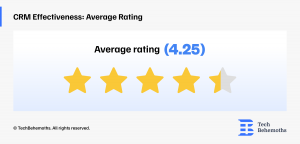
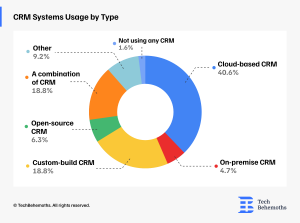
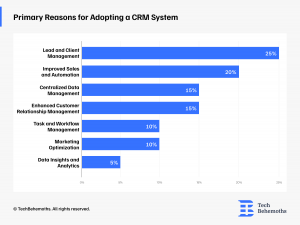
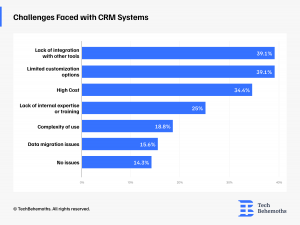
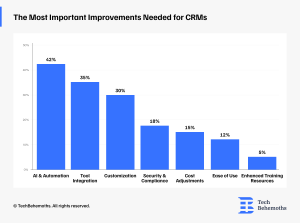







.gif)

 |
| |
| |
|